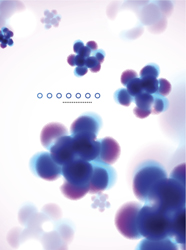Antibodies to deliver anti-cancer drugs
In the adult, new vessel formation called angiogenesis is restricted to the female reproductive system. Tumours are characterised by new vasculature that provide the nutrients and oxygen required by rapidly growing cancer cells. Targeting the tumour vasculature could halt cancer growth. However, to prohibit toxicity, the targeted therapy should be directed to markers expressed solely by cancer cells. Based on this principle, the EU-funded 'Antibody derivatives as molecular agents for neoplastic targeting' (ADAMANT) project envisioned a pharmaceutical product based on antibody technology that could selectively target tumours. For this purpose, partners had to identify molecules that are selectively expressed in the newly formed vessels within tumours. Chemical proteomics methodology was developed by team members to modify proteins in cancer animal models with a reactive biotin moiety for use as markers. This was followed by selective isolation of modified proteins by high-performance liquid chromatography (HPLC) and mass spectrometry analysis. An atlas of vascular proteins expressed specifically in various tumour types (colon, pancreas, breast cancer, glioblastoma) or in metastatic lesions of the liver and bone marrow was developed. These tumour-specific antigens were subsequently used to identify monoclonal antibodies from phage libraries with strong and specific reactivity. Antibodies against the colorectal cancer marker carcinoembryonic antigen (CEA) showed highly specific uptake in all tumour metastases. Project members planned to load antibodies with cytotoxic drugs or radionuclides for imaging or treating the tumours. Their pre-clinical efficacy would be tested in rodent models of cancer. For this purpose, over 50 new derivatives of highly potent cytotoxic compounds were synthesised. Novel antibody–cytokine conjugates were developed for selective accumulation at the tumour site. Implementation of the newly developed products in the clinic was facilitated by a clinical trial with the F16 antibody labelled with iodine-124. Overall, the ADAMANT study's identification of specific cancer targets combined with monoclonal antibodies against these targets offers a powerful tool for imaging and therapy. The specificity of the targeted antigens promises a highly selective approach with minimal cross-reactivity with normal tissue.







